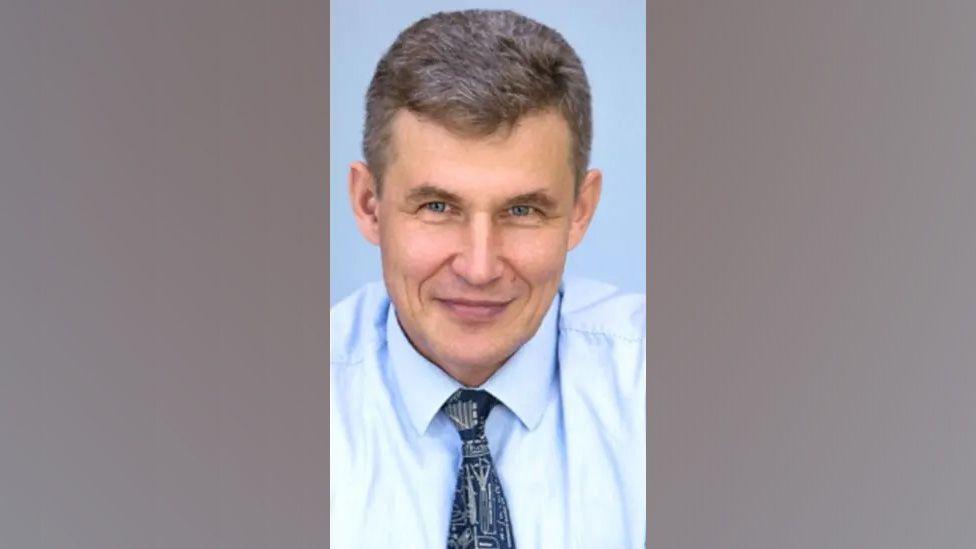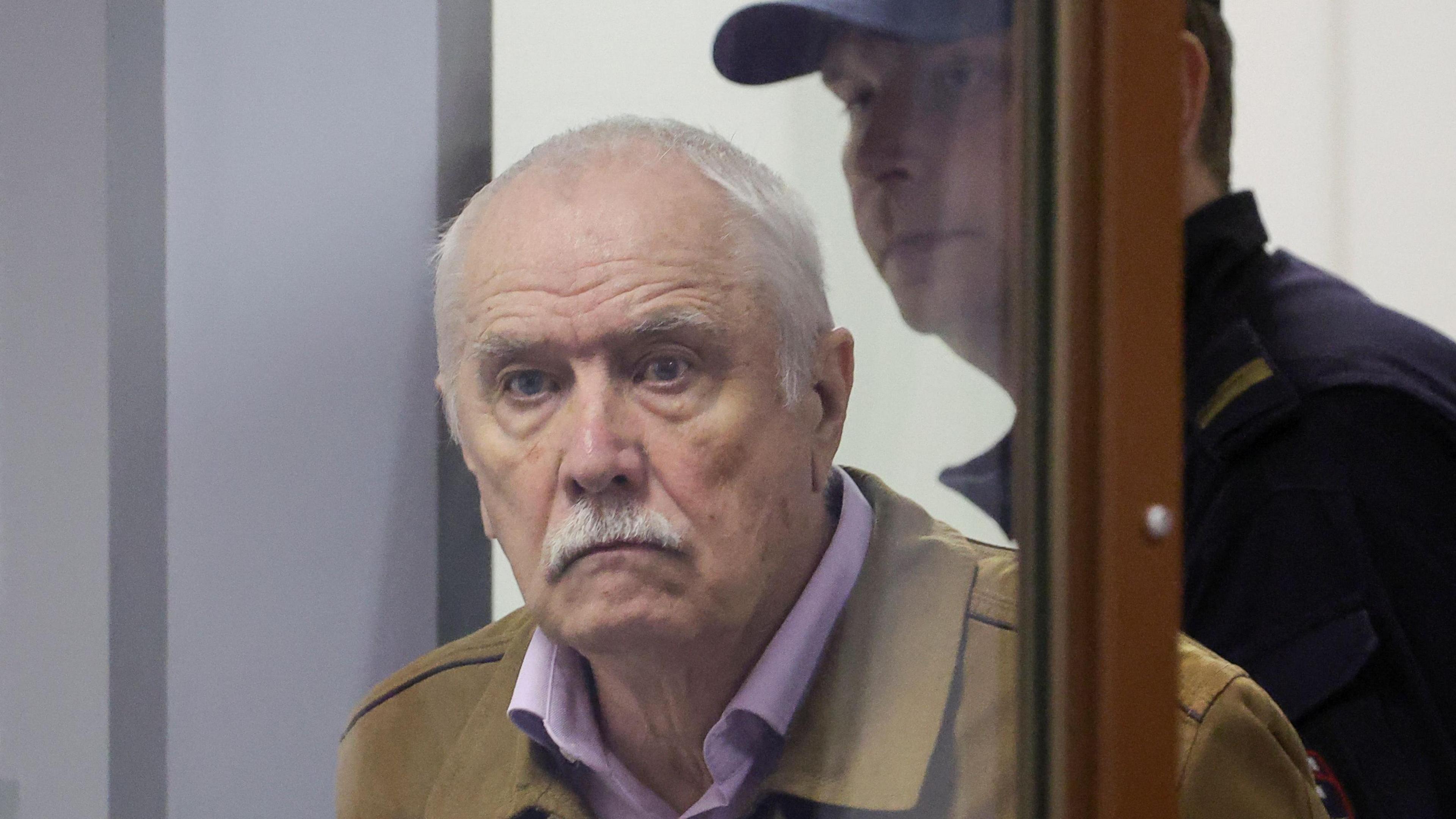Russian hypersonic scientist jailed for treason

Alexander Shiplyuk is one of several scientists linked to research which could be applied to ultra-fast missiles to have been arrested
- Published
A Russian scientist who worked on hypersonic technology has been jailed for 15 years after being accused of treason, according to state media.
Alexander Shiplyuk is the latest in a string of experts linked to research that could be applied to next-generation missiles to have been arrested in recent years.
The Russian news agency Tass reported he was accused of passing state secrets related to hypersonic technology to a foreign power, which the scientist denied.
Mr Shiplyuk was detained at a high-security penal colony following a trial held behind closed doors.
When he was arrested in August 2022, Tass described Mr Shiplyuk as a leading expert in his field and a member of the Russian Academy of Sciences.
The 57-year-old was director of the Institute of Theoretical and Applied Mechanics at the Siberian branch of the academy, and has published papers on hypersonic flight.
Hypersonic missiles can reach speeds of at least five times the speed of sound and can change direction during flight, making them potentially far more difficult for air defences to stop.
A dozen Russian scientists with some connection to hypersonic technology, or to institutions known to have worked on it, have been arrested since 2015 and charged with high treason.
Few details have been released from Mr Shiplyuk's secretive trial, but Reuters reported, external last year that he was accused of passing secrets to China.
He pleaded not guilty to the charges, BBC Russian reported. His son Mikhail Shiplyuk told the BBC: "He and his lawyer fought to the last."
He described his father as "a man who loves his work, in general, who gave his life to it".

Few details have been released about Mr Shiplyuk's secretive trial
Most of the scientists arrested by Russian intelligence in recent years are elderly and three have since died, including one who was suffering from cancer. He died shortly after being arrested in his hospital bed.
Last year, Mr Shiplyuk’s institute - which employed three of those arrested - published a since-deleted open letter defending its staff, and suggested their detention was the result of normal scientific activities, like presenting at international conferences and publishing articles in journals.
President Vladimir Putin has publicly lauded Russia's progress at developing hypersonic missiles, and described one model as an "ideal weapon". However, some analysts argue their efficacy is overstated.
Russia says it has used two types of hypersonic missiles as part of its invasion of Ukraine, which would mark the first time they have been deployed in combat -though Kyiv has claimed to have shot some down.
In 2022, the US, UK and Australia announced they were co-operating on research on how to defend against the modern missile models.
Related topics
- Published9 June 2024
